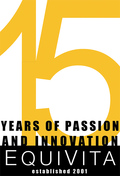Having worked in the fitness/ allied health industry for over 20 years has provided me the ability to be with people through major life changes of births and deaths, marriages and divorces, devastating traumas and illnesses as well as great personal achievements and successes. Through all of this I have been able to experience how each person’s individual care-of-self has played a role in their ability to navigate these life events. And while there are few consistent guidelines, the constant that I can say with certainty is those that keep their body moving are more resilient to whatever life brings.
One of the negatives of the work that I do is seeing the other side - when people don’t maintain focus on that which is most important. This happens sometimes when I run into former clients at social settings and the conversation inevitably is about how they are doing physically and it brings to light the challenge of keeping a body moving.
Recently I had one of these experiences where the man that I had helped to get past some significant back pain told me that he - years after he had worked with me - had emergency back surgery. Now, back surgery is not something that you want but when you add the word “emergency” it makes it worse. Much worse.
He made comments like “if only I had kept up the exercise” and “wish I would have known”, and as much as I want to agree and say of course if you had only kept up your exercises you wouldn’t have had to endure the pain and surgery, the only reply I can say is that we can never really know. Because there are really too many variables.
To see a shortened stride or feel a tight muscle is fairly simple. Identifying the cause and interplay of the movements of the body is harder, but even that is not enough when it comes to working with people. How you sit, stand, lay and move throughout the day all play a role in the physical stress and torque to the body and so does your hydration, nutrition and stress. When you start to consider all of the things that are involved you start to see that it is far more complex than being able to avoid surgery.
This complexity leaves some overwhelmed and ignoring while others take a more western medicine focus of trying to fix one thing. I am a believer in keeping as simple as possible, even though Care-of-the-self is the most important thing, if you see it as too vague then just remember that there is no substitute for movement. Maintain your focus on that which will enable you to keep your body moving and you increase your resiliency and adaptability.
As always, let me know how I can help.
Adam

 RSS Feed
RSS Feed
